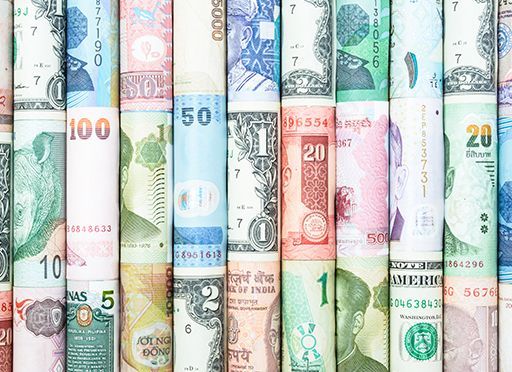Ken Honda, Japan’s “Happy Little Millionaire,” contends that your attitude determines how much money flows to you.

The Flow of Money
Ken Honda, Japan’s “Happy Little Millionaire,” contends that “Happy Money” leads to contentment and joy, and “Unhappy Money” causes fear, pride or resentment. Honda advises that money flows everywhere if you are open to it. His abundance philosophy is optimistic, but whether it is businesslike or applicable in practice may depend on how you use it.
Honda clearly has an expertise in the flow of money – he has sold more than seven million copies of his self-development books, and he owns and runs an accounting company, a management consulting firm and a venture capital firm, among other businesses.
Our lives are the result of all the mistakes and achievements of human history.Ken Honda
Authors whose work is parallel to Honda’s greatly admire his book. For example, Lisa Nichols, author of Abundance Now, wrote, “Ken Honda’s wisdom, intellect, success and achievement combined with his spirituality, love and compassion make him the perfect person to bring forth this conversation about healing and happiness.” You might also want to read You Are the One by Kute Blackson or Sheri Salata’s The Beautiful No.
Two Kinds
Honda distinguishes between Happy Money and Unhappy Money. Happy Money circulates with affection, warmth and care. Unhappy Money, he cautions, circulates in fear, anxiety and even despair.
Your money – and hence your life – is a reflection of your beliefs about money. Ken Honda
Honda’s basic message is that you can’t control the world of money, but you can control how you feel about it. This aligns with most self-help books, which suggest that while you can’t control what happens to you, you can control how you react to it. And, Honda says, how you feel about money will determine how much of it you get.
Honda posits that people want money to maintain their standard of living, to acquire power, to gain revenge, to be free, to be loved or to express love. These reasons seem patently true, but whatever insight they provide remains murky.
“Money EQ”
Honda describes people with a high Money EQ as trustworthy and generous. He insists that people will give high-EQ individuals money to express gratitude for their gifts. Readers who have yet to receive money that way might have a hard time embracing the concept.
Honda casts either blame or responsibility back to you by suggesting that if people scheme to get your money, trouble haunts your relationships.
He advises investing for the long game in whatever material aligns with your values. He presents the tautology that people aren’t confident because they are rich – they are rich because they are confident.
Sacrifices
Honda believes that you absorbed financial lessons from watching your parents handle money. If they argued about money, he maintains, you may grow up uneasy about it, which can lead to bad career and relationship choices. Linking to your past, he argues, will help you appreciate how your parents and grandparents provided the life you enjoy today. Gratitude is a Honda theme. He urges you to be grateful for the sacrifices of past generations.
“Flow”
Honda says money has flow. This flow is neutral: Money goes to people who move it around. Because these “money magnets” don’t fear money, he asserts, they attract and lose a lot of it. If you are in a situation where more money comes in than goes out, that’s a sign you are doing what you love. When money flows, Honda urges investing. He suggests going where money flows – New York, Shanghai, Hong Kong, London – because lots of people equal energy, which equals money.
Bad financial situations teach important lessons, Honda says, in hopes that you will remember that hard times are temporary.
Say “Thank You”
Honda cites the late Wahei Takeda, the Warren Buffett of Japan, as a happy person. He quotes Takeda as saying that you should say thank you when money arrives, and thank you when it departs.
You are responsible for the charge of energy you infuse your money with.Ken Honda
Honda advises showing gratitude by tipping well and buying from people you like. Underscoring his theme of gratitude, Honda points out that humankind needs to change from a combative mind-set to a grateful one. If the world could turn its energy toward the greater good, he concludes, then anything would be possible. Money, he hopes, would be like salt – necessary, cheap and plentiful. He envisions a world in which education, quality food, energy and communication would be so cheap they’d almost be free.
“Intentional Gratitude”
Honda wants you to embrace “intentional gratitude,” in response to what life gives you. Counsel your children about gratitude, he says, so they won’t believe life is unfair when they don’t get what they want.
Honda’s summing-up will be excessively familiar to readers of self-help books: Take risks. Don’t succumb to fear. Believe in yourself and your abilities. Gifts show up when you are ready for them. Show gratitude.
Not Exactly Practical
If you’ve read that Honda is the Marie Kondo of money, don’t believe it. Kondo’s advice is practical with a spiritual bent. For example, if you follow her guidance on folding T-shirts, you will end up with, if not a new view on life, at least a nicely folded shirt. Honda’s advice proves almost entirely spiritual. And while his guidance about developing healthy habits and a healthy outlook is sound, it’s hardly original. Honda writes in an upbeat, easy-to-read, direct voice that is both comforting and paternal. If that’s how you prefer your self-help served, then Honda is the author for you.





